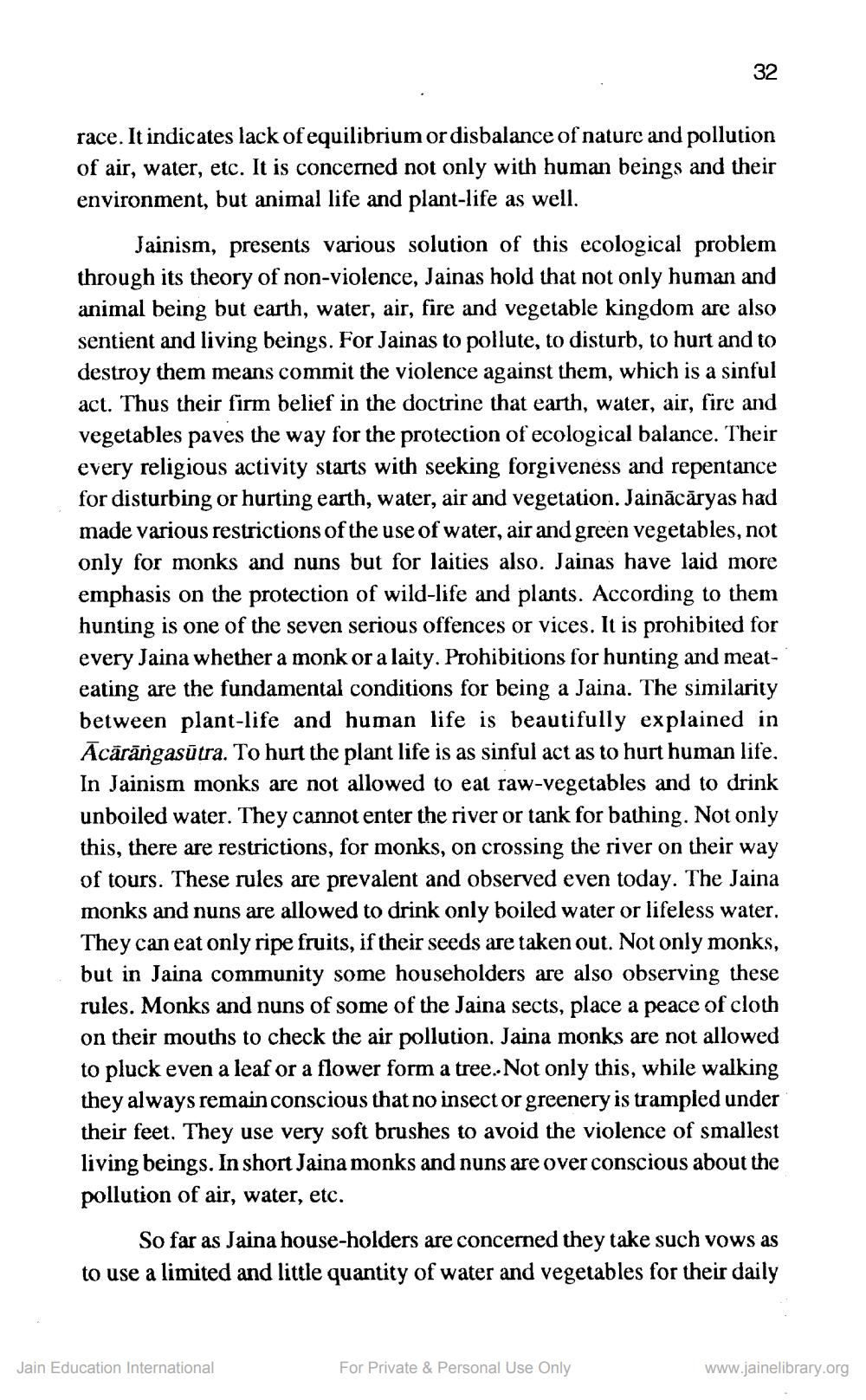________________
race. It indicates lack of equilibrium or disbalance of nature and pollution of air, water, etc. It is concerned not only with human beings and their environment, but animal life and plant-life as well.
32
Jainism, presents various solution of this ecological problem through its theory of non-violence, Jainas hold that not only human and animal being but earth, water, air, fire and vegetable kingdom are also sentient and living beings. For Jainas to pollute, to disturb, to hurt and to destroy them means commit the violence against them, which is a sinful act. Thus their firm belief in the doctrine that earth, water, air, fire and vegetables paves the way for the protection of ecological balance. Their every religious activity starts with seeking forgiveness and repentance for disturbing or hurting earth, water, air and vegetation. Jainācāryas had made various restrictions of the use of water, air and green vegetables, not only for monks and nuns but for laities also. Jainas have laid more emphasis on the protection of wild-life and plants. According to them hunting is one of the seven serious offences or vices. It is prohibited for every Jaina whether a monk or a laity. Prohibitions for hunting and meateating are the fundamental conditions for being a Jaina. The similarity between plant-life and human life is beautifully explained in Acarangasūtra. To hurt the plant life is as sinful act as to hurt human life. In Jainism monks are not allowed to eat raw-vegetables and to drink unboiled water. They cannot enter the river or tank for bathing. Not only this, there are restrictions, for monks, on crossing the river on their way of tours. These rules are prevalent and observed even today. The Jaina monks and nuns are allowed to drink only boiled water or lifeless water. They can eat only ripe fruits, if their seeds are taken out. Not only monks, but in Jaina community some householders are also observing these rules. Monks and nuns of some of the Jaina sects, place a peace of cloth on their mouths to check the air pollution. Jaina monks are not allowed to pluck even a leaf or a flower form a tree. Not only this, while walking they always remain conscious that no insect or greenery is trampled under their feet. They use very soft brushes to avoid the violence of smallest living beings. In short Jaina monks and nuns are over conscious about the pollution of air, water, etc.
So far as Jaina house-holders are concerned they take such vows as to use a limited and little quantity of water and vegetables for their daily
Jain Education International
For Private & Personal Use Only
www.jainelibrary.org




